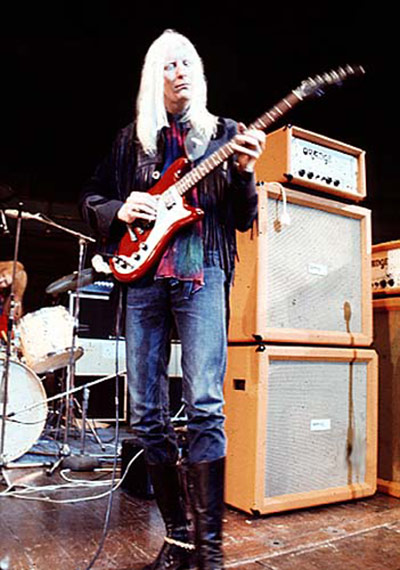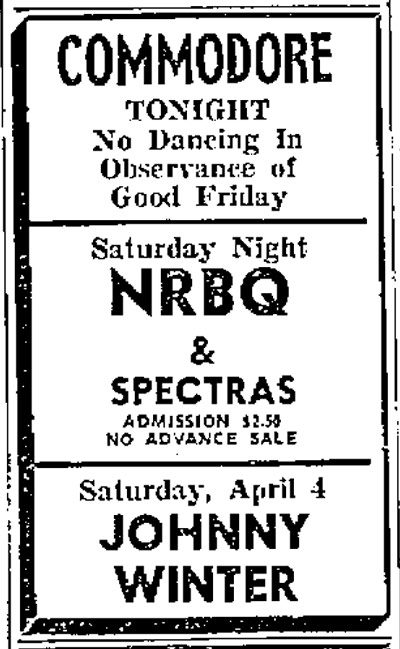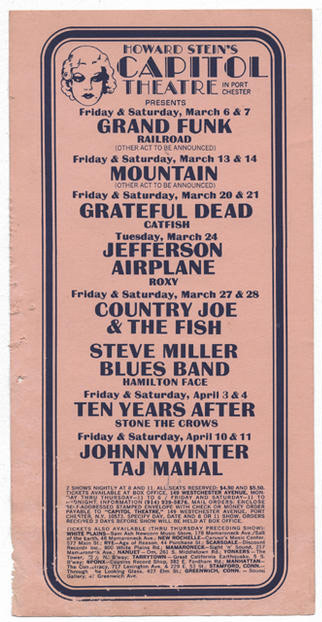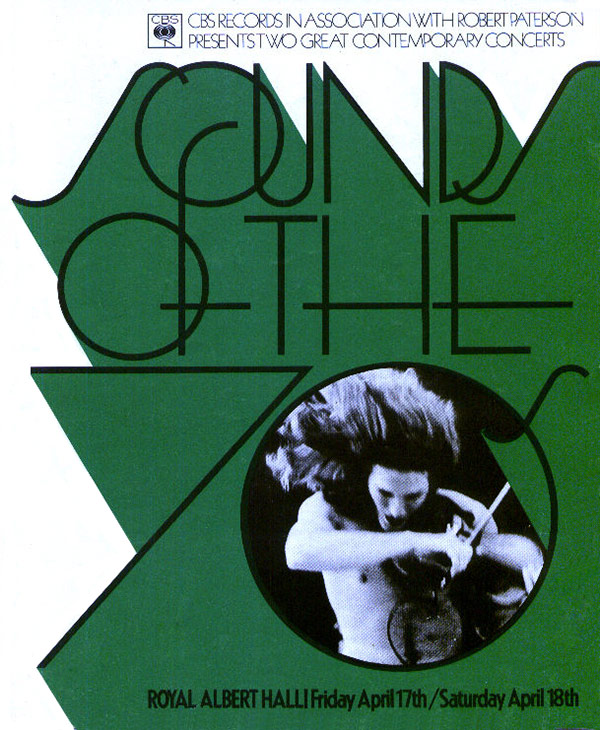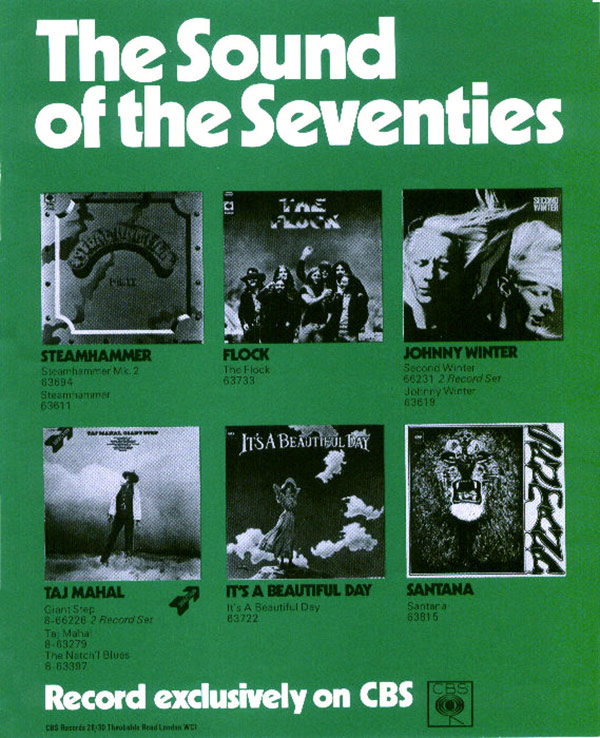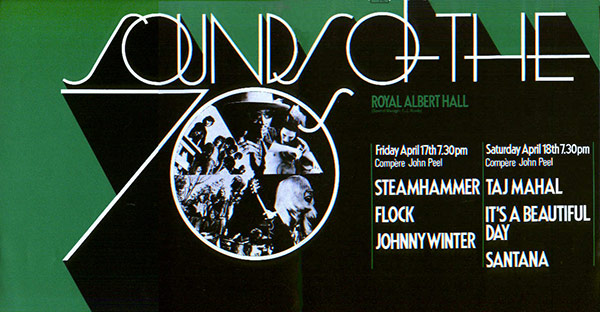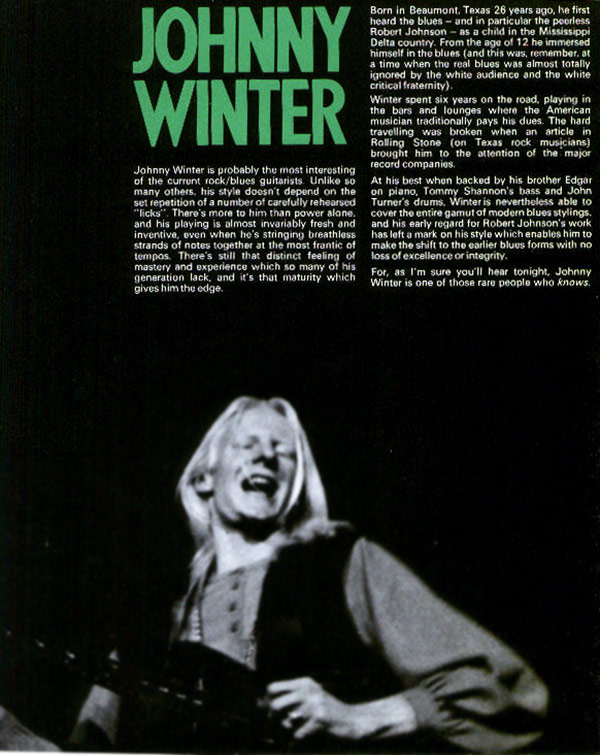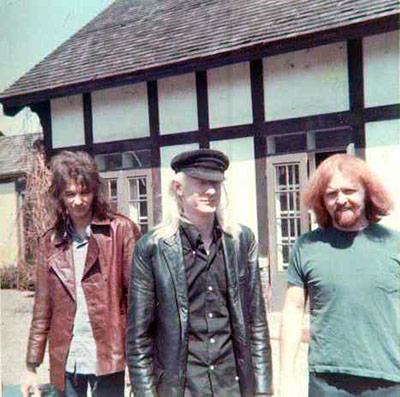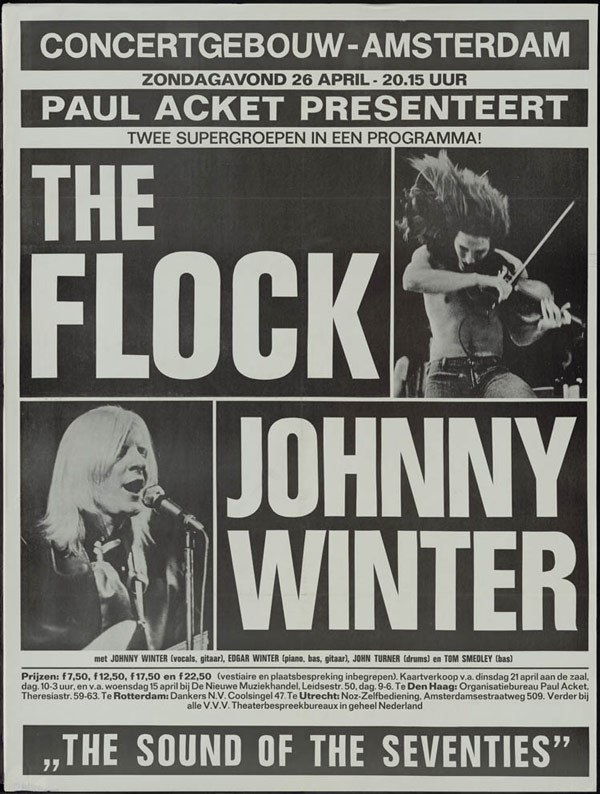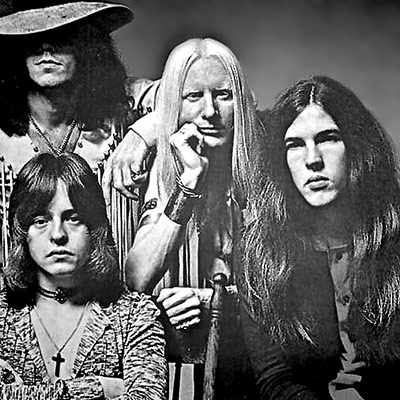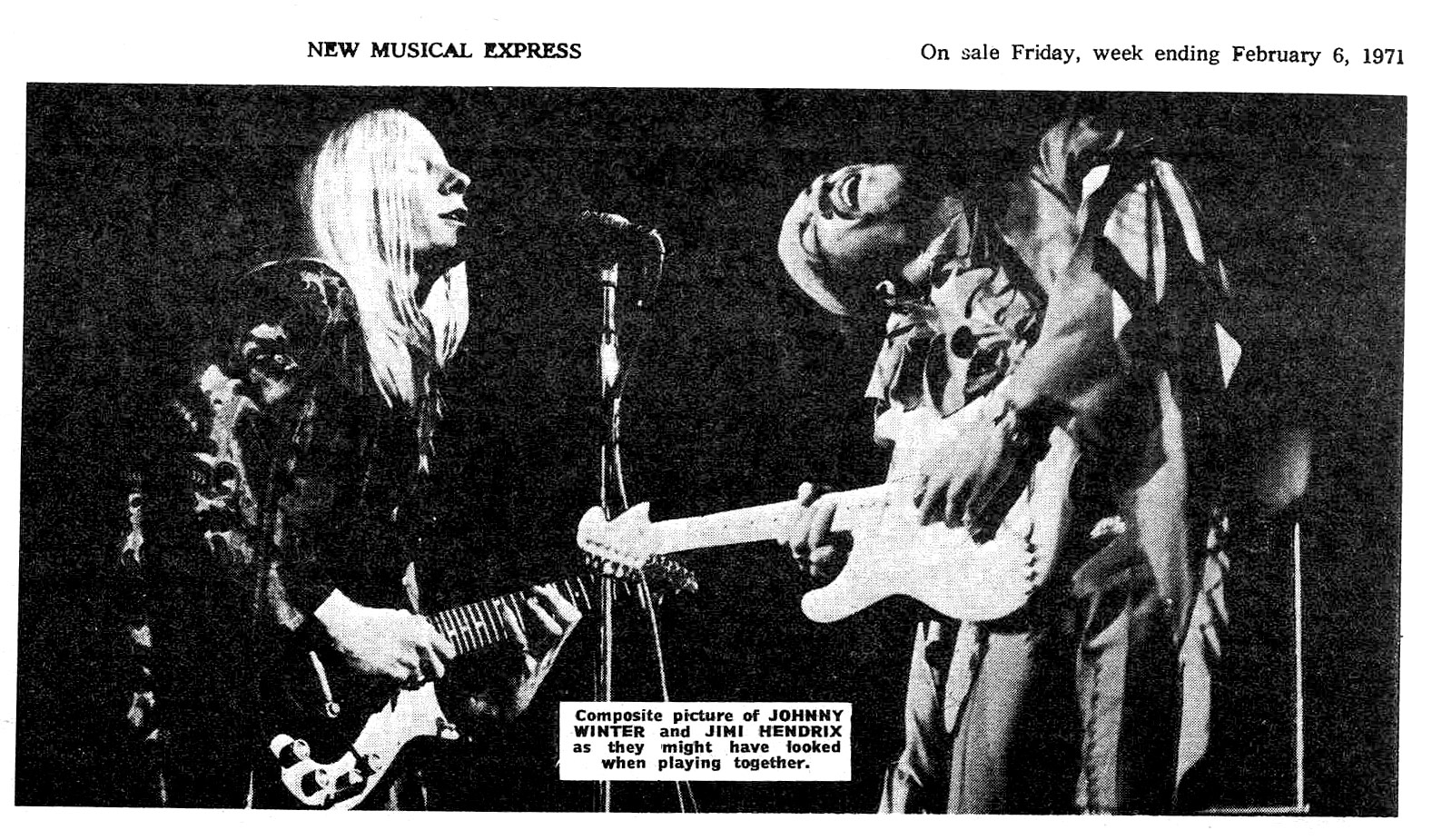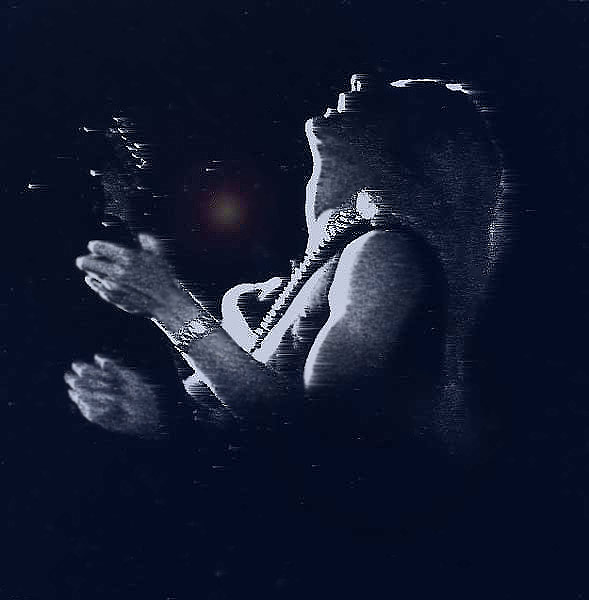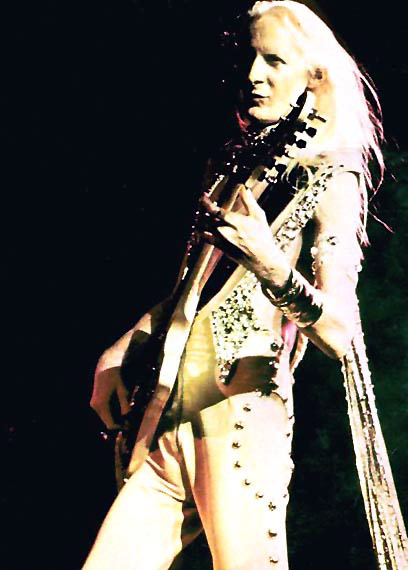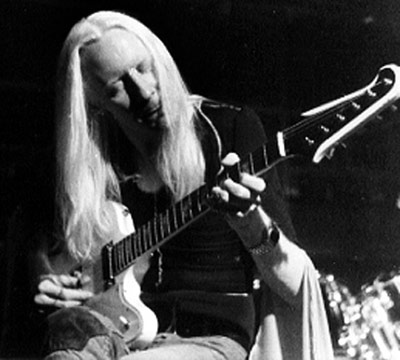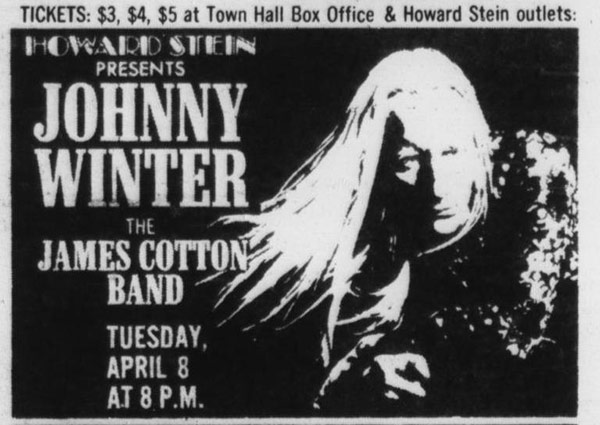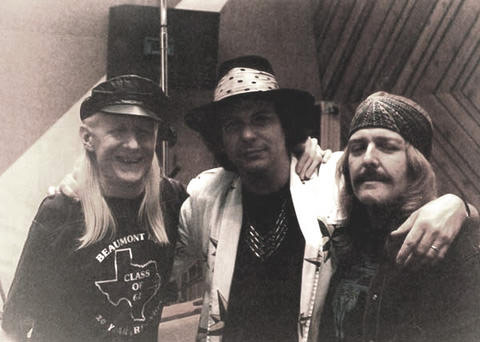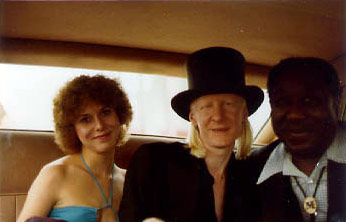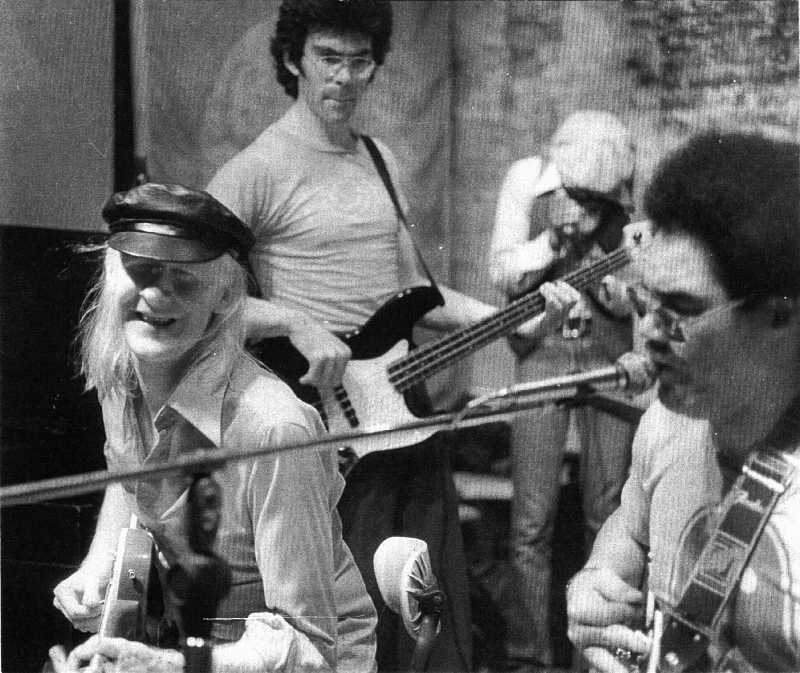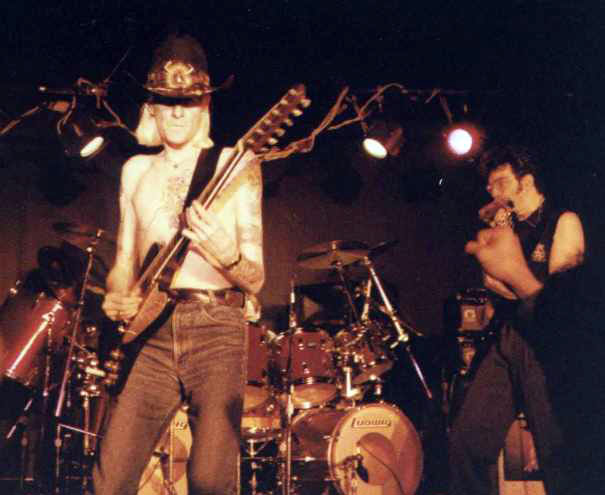Johnny Winter in April 1970
-
April 1970 was a whirlwind of musical energy for Johnny Winter. He kicked off his first European tour with a bang, electrifying audiences at the Royal Albert Hall and the Beat Club TV show with his scorching guitar solos and raw blues power. The momentum continued as he blazed a trail through Montreux, Amsterdam, and Helsinki, leaving a lasting impression on the European music scene. Back home, the buzz surrounding his performances hadn't faded. He continued to draw crowds, playing to packed houses at venues like the Commodore Ballroom in Lowell, Massachusetts, and Howard Stein's Capitol Theatre in Port Chester.
Yet, even amidst the roaring success, a restlessness stirred within Winter. Upon returning from Europe, he made the surprising decision to disband his current group. It was a bold move, a testament to his relentless pursuit of musical evolution and his hunger for new sounds. As April drew to a close, the stage was set for a new chapter in Johnny Winter's blues odyssey. The future was uncertain, but one thing was clear: his passion for music burned as brightly as ever.
